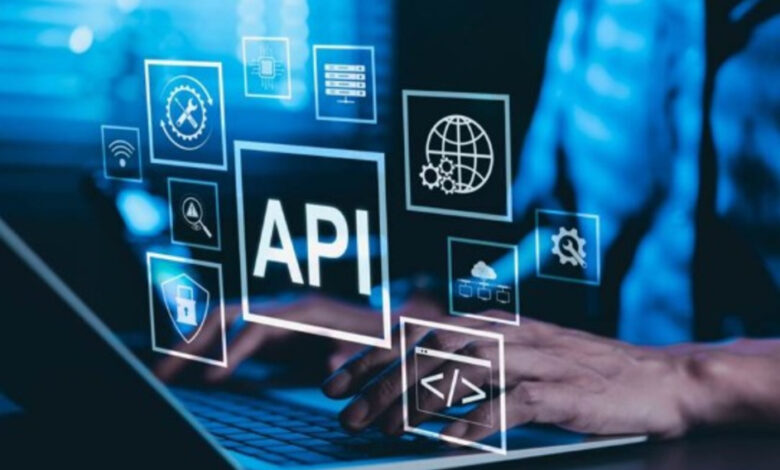Delivery Software API: The Future of Seamless Logistics Integration

In today’s hyper-connected logistics and supply chain ecosystem, businesses can’t afford to operate in isolation. Whether you’re managing a fleet, coordinating last-mile deliveries, or tracking real-time shipments, Delivery Software API integrations have become the backbone of efficient operations. These APIs empower businesses to streamline workflows, eliminate data silos, and enhance customer experiences, all while maintaining complete control over their logistics processes.
In this blog, we’ll explore what a Delivery Software API is, how it works, and why it’s a game-changer for modern delivery businesses. We’ll also examine how a platform like Cigo Tracker leverages API integrations to help companies achieve faster, smarter, and more transparent delivery operations.
Understanding Delivery Software API
A Delivery Software API (Application Programming Interface) acts as a digital bridge that allows different software systems to communicate and share data effortlessly. In simple terms, it connects your delivery management software with other applications such as CRM systems, e-commerce platforms, ERP software, and customer support tools.
This integration ensures that every part of your delivery ecosystem from order placement to final delivery confirmation operates seamlessly. The result is an automated, synchronized system that minimizes human errors and maximizes efficiency.
For instance, when a customer places an order on an online store, a delivery software API automatically communicates this information to the logistics software, generating routes, dispatching drivers, and updating customers all in real time.
The Role of Delivery Software API in Modern Logistics
The logistics industry is evolving rapidly. Businesses are now dealing with higher customer expectations, tighter delivery windows, and increasing operational costs. Here’s where Delivery Software API integration comes in; it helps connect every link in the delivery chain.
- Automation Across Systems
APIs automate repetitive tasks such as scheduling, route updates, and proof of delivery. This ensures operations run smoothly without manual intervention. - Centralized Data Management
Instead of juggling between multiple systems, APIs centralize all delivery data, allowing managers to access accurate insights instantly. - Faster Communication
A delivery software API ensures data is exchanged in real time between delivery platforms and customer-facing systems. This transparency improves coordination and customer trust. - Improved Decision-Making
With data unified through API integrations, businesses can analyze performance metrics, identify bottlenecks, and make data-driven improvements.
The key benefits of using a delivery software API are as follows:
1. Streamlined Operations
API integrations eliminate the need for manual data entry. For example, delivery requests, route updates, and delivery confirmations can flow automatically from one system to another. This reduces administrative workload and accelerates the delivery process.
2. Enhanced Customer Experience
Customers expect visibility and communication at every stage of delivery. With Delivery Software API integration, real-time updates can be sent directly to customers, keeping them informed and engaged.
3. Real-Time Tracking and Analytics
Delivery APIs enable instant tracking updates, so businesses and customers always know where their packages are. Moreover, analytics derived from API data can reveal trends that help improve service quality.
4. Seamless Platform Integration
Whether you use Shopify, WooCommerce, Magento, or custom ERP software, a delivery software API ensures your logistics system connects effortlessly. This flexibility makes it easier to scale and adapt to business changes.
5. Cost Efficiency
By reducing manual errors, optimizing routes, and automating workflows, APIs help lower operational costs. Fewer errors mean fewer re-deliveries, saving both time and money.
Top Use Cases of Delivery Software API
- E-commerce Integration
When an order is placed online, the API instantly notifies the delivery software to assign the nearest available driver and update the order status. - Fleet Management Systems
APIs connect fleet data, including vehicle locations, driver behavior, and maintenance schedules, to delivery platforms for better control and optimization. - Customer Notification Systems
APIs can trigger automatic notifications through SMS or email, keeping customers updated about their order status, delivery ETA, and tracking links. - Accounting and Billing Integration
Automatically sync delivery charges, invoices, and payments with your accounting software for accurate financial management. - Warehouse and Inventory Synchronization
A delivery software API ensures warehouse systems are updated with order movements, preventing stock discrepancies and improving fulfillment accuracy.
How Cigo Tracker Enhances Delivery Operations with API Integrations
Cigo Tracker offers advanced Delivery Software API capabilities designed to empower logistics, retail, and e-commerce businesses. Its integration-friendly architecture allows businesses to connect their delivery systems with existing platforms effortlessly.
Here’s how Cigo Tracker’s API features make a difference:
● Real-Time Data Sync: Ensures that all systems from order management to route planning are updated simultaneously.
● Custom Integration: Whether you use a third-party CRM, POS, or ERP, Cigo Tracker’s API can be customized to fit your exact needs.
● Live Tracking and Communication: Enables instant delivery updates and communication between dispatchers, drivers, and customers.
● Performance Analytics: Integrated data offers insights into delivery times, driver efficiency, and customer satisfaction rates.
● Scalable Architecture: Cigo’s flexible API supports business growth, helping companies scale operations without disruptions.
With Cigo Tracker, businesses can achieve a unified logistics ecosystem that is data-driven, responsive, and efficient, the hallmark of modern delivery excellence.
The Future of Delivery Software API
As logistics becomes increasingly digital, Delivery Software API technology will play an even greater role. The future points toward intelligent APIs that can leverage AI and machine learning to predict delays, optimize delivery routes, and even automate customer interactions.
APIs will also enable interoperability between various supply chain partners from manufacturers to retailers, creating a transparent, collaborative, and highly efficient delivery network.
Conclusion
In an industry where speed, precision, and communication define success, a delivery software API is no longer optional; it’s essential. It acts as the connective tissue that unites all delivery operations, ensuring real-time data exchange, automation, and customer satisfaction.
By leveraging platforms like Cigo Tracker, businesses can easily integrate APIs to achieve smoother workflows, improved transparency, and enhanced performance. Whether you’re a small retailer or a global logistics provider, API-powered delivery management will keep your operations agile, scalable, and future-ready.





